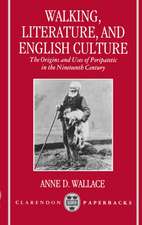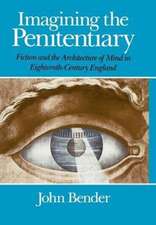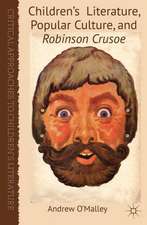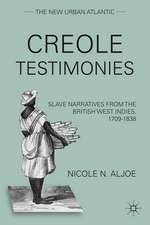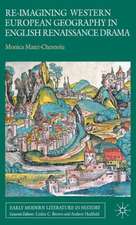Cruelty and Laughter: Forgotten Comic Literature and the Unsentimental Eighteenth Century
Autor Simon Dickieen Limba Engleză Paperback – 14 apr 2014
Eighteenth-century British culture is often seen as polite and sentimental—the creation of an emerging middle class. Simon Dickie disputes these assumptions in Cruelty and Laughter, a wildly enjoyable but shocking plunge into the forgotten comic literature of the age. Beneath the surface of Enlightenment civility, Dickie uncovers a rich vein of cruel humor that forces us to recognize just how slowly ordinary human sufferings became worthy of sympathy.
Delving into an enormous archive of comic novels, jestbooks, farces, variety shows, and cartoons, Dickie finds a vast repository of jokes about cripples, blind men, rape, and wife-beating. Epigrams about syphilis and scurvy sit alongside one-act comedies about hunchbacks in love. He shows us that everyone—rich and poor, women as well as men—laughed along. In the process, Dickie also expands our understanding of many of the century’s major authors, including Samuel Richardson, Lady Mary Wortley Montagu, Tobias Smollett, Frances Burney, and Jane Austen. He devotes particular attention to Henry Fielding’s Joseph Andrews, a novel that reflects repeatedly on the limits of compassion and the ethical problems of laughter. Cruelty and Laughter is an engaging, far-reaching study of the other side of culture in eighteenth-century Britain.
Delving into an enormous archive of comic novels, jestbooks, farces, variety shows, and cartoons, Dickie finds a vast repository of jokes about cripples, blind men, rape, and wife-beating. Epigrams about syphilis and scurvy sit alongside one-act comedies about hunchbacks in love. He shows us that everyone—rich and poor, women as well as men—laughed along. In the process, Dickie also expands our understanding of many of the century’s major authors, including Samuel Richardson, Lady Mary Wortley Montagu, Tobias Smollett, Frances Burney, and Jane Austen. He devotes particular attention to Henry Fielding’s Joseph Andrews, a novel that reflects repeatedly on the limits of compassion and the ethical problems of laughter. Cruelty and Laughter is an engaging, far-reaching study of the other side of culture in eighteenth-century Britain.
Preț: 342.94 lei
Nou
Puncte Express: 514
Preț estimativ în valută:
65.63€ • 67.80$ • 54.62£
65.63€ • 67.80$ • 54.62£
Carte tipărită la comandă
Livrare economică 25 martie-08 aprilie
Preluare comenzi: 021 569.72.76
Specificații
ISBN-13: 9780226142548
ISBN-10: 022614254X
Pagini: 382
Ilustrații: 15 halftones
Dimensiuni: 152 x 229 x 25 mm
Greutate: 0.48 kg
Editura: University of Chicago Press
Colecția University of Chicago Press
ISBN-10: 022614254X
Pagini: 382
Ilustrații: 15 halftones
Dimensiuni: 152 x 229 x 25 mm
Greutate: 0.48 kg
Editura: University of Chicago Press
Colecția University of Chicago Press
Notă biografică
Simon Dickie is associate professor of English at the University of Toronto.
Cuprins
Preface
Acknowledgments
Introduction: The Unsentimental Eighteenth Century, 1740–70
1 Jestbooks and the Indifference to Reform
Nasty Jokes, Polite Women
How to Be a Wag
2 Cripples, Hunchbacks, and the Limits of Sympathy
Deformity Genres
Dancing Cripples and the London Stage
Streets and Coffeehouses
Poetry and Polite Letters
Damaged Lives
Disabled Bodies and the Inevitability of Laughter
3 Delights of Privilege
Laughing at the Lower Orders
Contexts from Social History
Frolics, High Jinks, and Violent Freedoms
Lovelace at the Haberdasher
4 Joseph Andrews and the Great Laughter Debate
Narrative from a High Horse
The Ethics of Ridicule
Fielding’s Problem with Parsons
5 Rape Jokes and the Law
Laughter and Disbelief
Modesty and the Impossibility of Consent
Functions of an Assault
Accusing, Making Up, and the Local Magistrate
Humors of the Old Bailey
In Conclusion: The Forgotten Best-Sellers of Early English Fiction
Ramble Novels and Slum Comedy
Reading for the Filler
Abbreviations
Notes
Index
Recenzii
“This book is a prodigiously erudite reminder that the eighteenth century was not just polite, but vicious. Drawing on jestbooks, verse satires, comic fiction, and a plethora of overlooked sources, Dickie depicts a literary, visual, and physical world replete with cruelty, ribald denigration, and low and bawdy humor. Skillfully combining textual exegesis with a profound knowledge of recent social history, he shows that mockery of the lower orders, beggars, and the poor; jests and japes at the expense of the crippled, deformed, and handicapped; and ribald enthusiasm for sexual violence and rape were part of a cruel social world in which the unprivileged and disadvantaged, even as they sometimes excited compassion and sympathy, were just as likely to excite a disdain that ran the full gamut of verbal and physical violence.”
“A pioneering work. Dickie uncovers a rich, long-neglected archive and challenges received wisdom on virtually every page. A joy to read and a revelation.”
“With great verve, occasional disgust, and intermittent outrage, Simon Dickie portrays a society of entrenched hierarchies in which entitled aristocrats entertained themselves with cripple dances, libertine young bucks wreaked havoc in both popular fiction and common reality, and the poor and disabled were the inevitable butts of cruel jokes on and off the page. Working against common scholarly assumptions but backed by ample evidence, he argues that delight in the suffering of others was one thing that all classes of eighteenth-century society shared. Throughout he combines the virtues of a historian and a literary critic with a creative and self-conscious awareness of the complex relation of representation to reality. One of the most original, readable, educational, and entertaining books in the field of eighteenth-century studies I have read in the past decade.”
“This excellent and thoroughly researched book argues clearly that eighteenth-century readers read—and worse, enjoyed laughing at—jokes that we would find in incredibly bad taste; and in that, Dickie sees the key to the persistence of an entire way of thinking that is now lost to us. Bringing a tremendous amount of material to our attention, he takes a provocative stance against what he sees as an idealized image of the eighteenth century and points to numerous avenues for future research. Terrific and important, Cruelty and Laughter will be of great interest to scholars of eighteenth-century history, literature, popular culture, humor, and the history of the book.”
“Placing Fielding, the greatest humourist of his time, back amongst his contemporaries and responding to the comedy of his writing as his first readers would have done is a masterly stroke in this scholarly, original and highly readable book.”
“The examples [Dickie] presents are convincing—and largely shocking to modern sensibilities.”
“Dickie unearthed a huge number of 18th-century jest books, poems, bodily dysfunction and rape jokes, ramble novels, and farces—most of them hitherto ignored or neglected—and here offers a valuable and engrossing exploration of them. . . . Highly recommended.”
“Dickie mounts a compelling case against what he calls ‘the politeness-sensibility paradigm,’ by resurrecting a jeering counter-discourse that reveled in human suffering and physical affliction.”
“Dickie . . . has done a brilliant job illuminating a dark side to the British psyche some 300 years ago.”
“A brilliant and beautifully written book, Cruelty and Laughter introduces its readers to a world of violent mayhem, both rhetorical and real. . . . Such is the transformative experience of reading this book that I, for one, will never look at the mid-eighteenth century again in quite the same way.”
“Astonishing. . . . If you think you know the eighteenth century, you will not look at it the same way after reading this book.”
“Dickie’s book is energetic and full of perceptive detail, and assembles a great deal of little-known material.”
“Dickie wants to study experience, the ‘reality’ behind the jokes, and to this end he complements his literary analysis with social history. He does a masterly job of using shreds of evidence to reconstruct not only a culture of cruel jokes but also the society from which these sprung. . . . Dickie has given us a terrific account of the unsentimental eighteenth century, deepening our understanding of how malicious laughter was an enduring element of British culture.”
“This book is a genuinely interesting and important contribution to scholarship. Anyone interested in the comic writers of the eighteenth century will find Cruelty and Laughter worthwhile. Dickie has changed the way we should conceive of eighteenth-century humor and altered our understanding of what readers enjoyed reading. This book makes possible critical reassessments of Fielding, Smollett, Sterne, and others that take into account the reading public’s taste for cruel comedy.”
“Dickie has performed a valuable service by digging deep in eighteenth-century popular (and for that matter high) culture and unearthing forgotten texts and the attitudes they project that prove his point beyond any doubt. His scholarship is thorough, indeed comprehensive, and his book is richly informative. . . . Masterful scholarship. . . . I will never again speak glibly of the Age of Sensibility.”




